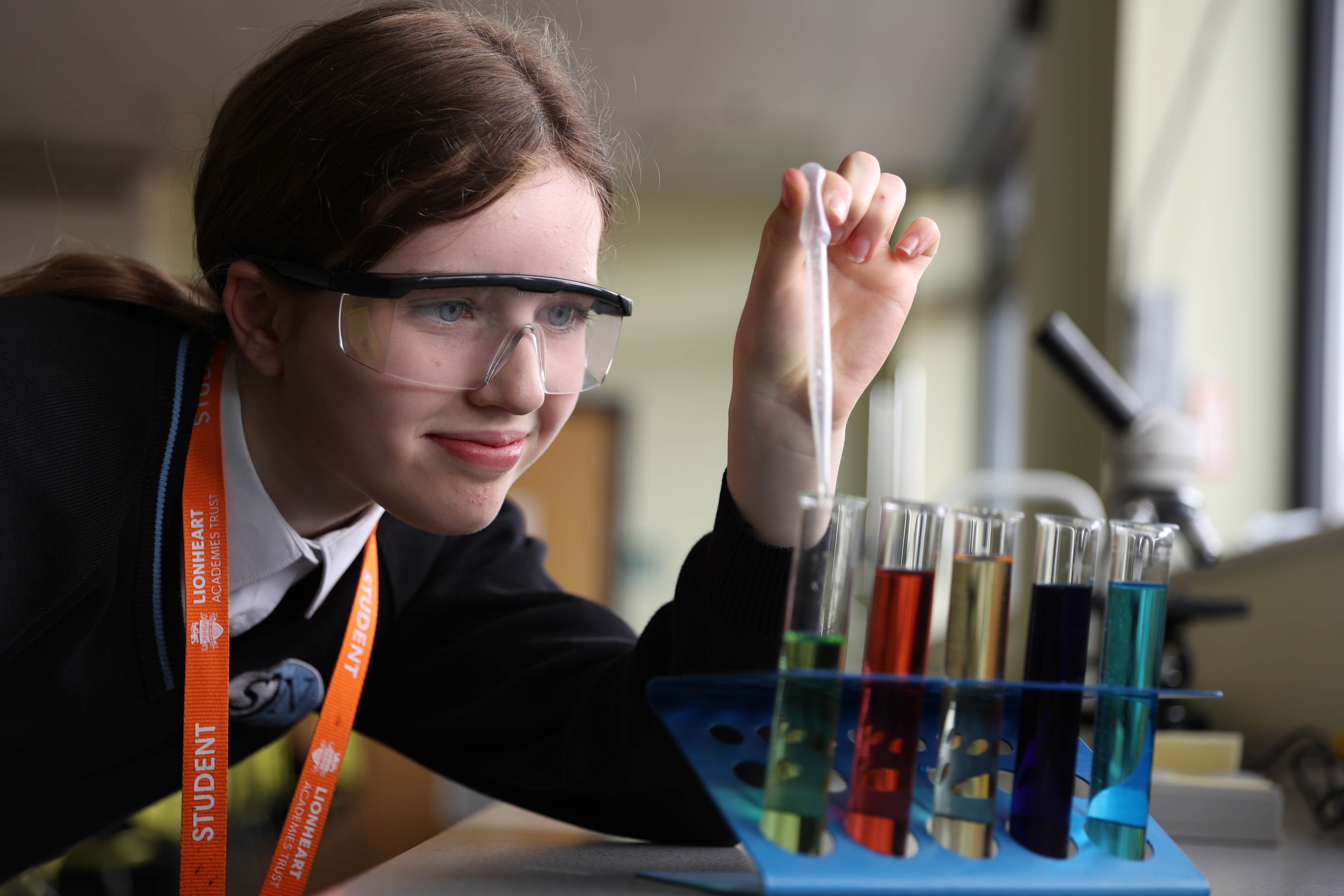
Science
SCIENCE (GCSE)
Science plays a major part in our lives. Through science, students learn how major scientific ideas contribute to technological change impacting on industry, business and medicine and improving the quality of life.
Everyone will study science as part of the core curriculum. There are two courses available to students, and their course will depend on the student's prior attainment in KS3. The majority of students will complete the AQA Combined Science (Trilogy) GCSE which awards two GCSEs. This is a balanced course that contains elements of Biology, Chemistry and Physics.
Those students who achieve at least a secure in KS3 science are encouraged to opt for the Separate Science course. Students studying the Separate Sciences course will complete separate GCSEs in Biology, Chemistry and Physics. These GCSEs include greater content and more depth.
Teaching of GCSE courses will start in January 2024. Students who wish to complete the Separate Sciences course will have been notified whether they have been successful in gaining a place in the Separate Sciences classes before the end of the Autumn Term.
EXAMINATION BOARD – AQA GCSE (9-1)
SPECIFICATION CODE –
- Combined Science (Trilogy) 8464
- Separate Sciences:
Biology 8461
Chemistry 8462
Physics 8463
CURRICULUM CONTENT
For both routes students will study the following topics for their GCSE paper 1 subject are:
|
Biology |
Chemistry |
Physics |
|
1. Cell Biology
|
1. Atomic structure and the periodic table |
1. Energy |
|
2. Organisation |
2. Bonding, structure and the properties of matter |
2. Electricity |
|
3. Infection and response
|
3. Quantitative chemistry |
3. Particle model of matter
|
|
4. Bioenergetics |
4. Chemical changes |
4. Atomic structure |
|
|
5. Energy changes |
|
For paper 2 students will study these topics for each subject:
|
Biology |
Chemistry |
Physics |
|
5. Homeostasis and response |
6. The rate and extent of chemical change |
5. Forces
|
|
7. Inheritance, variation and evolution |
7. Organic chemistry |
6. Waves |
|
8. Ecology |
8. Chemical analysis |
7. Magnetism and electromagnetism |
|
|
9. Chemistry of the atmosphere |
8. Space (Separate Physics – 8464 Only) |
|
|
10. Using resources |
|
ASSESSMENT
Students sitting (8464) Combined Science (Trilogy) will sit two papers of a 70-mark, 75-minute paper in each of the disciplines (Biology, Chemistry and Physics).
Students sitting Separate Sciences; (8461) Biology, (8462) Chemistry and (8463) Physics will sit two papers each of 100-mark, 105-minute paper for each course.
EXTRA-CURRICULAR OPPORTUNITIES
Students can participate in a trip to the Natural History Museum and Science Museum during the first part of the GCSE courses, at the end of year 9. In addition, students opting to study Separate Science have an opportunity to attend a behind the scenes trip to the Natural History Museum in London to explore exhibits, such as Darwin’s collection. Students can also get involved with events organised by the Space Academy at the National Space Centre, including a Science Careers Fayre. In addition, Science staff run events such as British Science Week and Chemistry Week where students are invited to listen to guest speakers and take part in science activities.
We are also pleased that we have gained access to telescopes that can be lent out by students who may wish to have the opportunity to use them.
PROGRESSION
Students who wish to go on to study any of these subjects at A-Level would be expected to achieve a grade 6 in their GCSE. Students can progress onto medicine, dentistry, astrophysics, engineering to name but a few possible careers.

